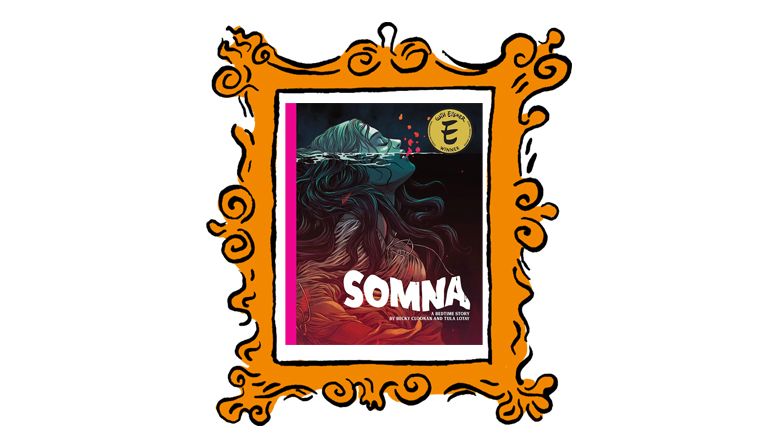The comic-book industry has not, historically, been kind to the creators of the garishly costumed, super-powered characters who have earned the big publishers £billions in multimedia revenue.
Jerry Siegel and Joe Shuster, who created Superman in 1938, were paid $130 by DC Comics for all rights to their creation. Four decades later, when Christopher Reeve brought the Man of Steel to the big screen, Shuster was working as a delivery driver to make ends meet. Ironically, the cheque that they were given to sign away any ownership in Superman was sold at auction in 2012 for $160,000.
Jack Kirby, now acknowledged as the co-creator of such Marvel superstars as the Fantastic Four and Captain America, died mired in legal battles to get recognition for his part in the formation of those characters. Similarly, Steve Ditko, who is now known to have a bigger hand in creating Spider-Man than originally publicly acknowledged, never reaped the benefit of the ubiquity of the character.
Things are a little better now; the comics companies at least take pains to credit the creators of the characters when they hit the screen, and contracts now sometimes allow for at least a little remuneration as well.
What’s more, rival companies to Marvel and DC have sprung up in recent years, trying to strike fairer deals with comic-book writers and artists—not least through the “creator-owned” model, which allows creators to keep the rights to their characters. Image Comics, founded in 1992, is perhaps the most famous example of this, but there’s a new kid on the block that goes even further: DSTLRY (pronounced “distillery”) comics.
Launched just under a year ago by David Steinberger, the founder and former CEO of the ComiXology digital comics reading app and publisher (now owned by Amazon), and Chip Mosher, ComiXology’s former head of content, DSTLRY has so far attracted some of the industry’s biggest names to work for it.
Titles released so far include Somna, a folk-horror series by Becky Cloonan and Tula Lotay, the third and final issue of which was released yesterday; cosmic sci-fi adventure Gone, by cult artist Jock; and The Devil’s Cut, an anthology featuring work by Ram V, Brian Azzarello, Elsa Charretier, and more names instantly recognisable to anyone familiar with the comics landscape today.
DSTLRY describes itself as the next generation of comic-book company in the creator-owned arena. It’s certainly true that the company is making a splash: its first titles all sold out quickly, necessitating second print runs. What it actually is, however , isn’t something brand new, but something very venerable: a good, old-fashioned workers’ cooperative.
As Mosher and Steinberger put it to me, the writers and artists they initially signed up—whom they call their “founding creators”—each “have an equity stake in the company and retain ownership of their intellectual property. Every decision for the company begins with the question, how can this benefit the creator? We firmly believe that well-supported writers and artists tell the best stories.”
“The equity may be what sets us most apart: if you generate a huge hit at DSTLRY, not only are you making the majority of the upside on the comic’s sales, but you’re also an owner of this brand that is growing because of your contributions. That’s new, and means we have creators that work mostly alone feeling like they are a part of something bigger, with other creators they respect contributing as well.”
The creators involved are naturally quite evangelical. Scott Snyder—perhaps best known as the writer of one of the most acclaimed runs of Batman comics—says, “To me, what separates DSTLRY from other publishers is that its model allows us to bet on each other. As a founding creator, we each have a stake in the company, and therefore we can invest in our friends, people who inspire us as humans and as fellow storytellers.”
The Somna creative team of artist Lisa Wood, who draws under the pen-name Tula Lotay, and writer Becky Cloonan, add, “Comics can be a lonely job, but DSTLRY has brought a group together and made it feel like family. It’s the only publisher I’ve worked for where I feel like I’m working not just for them, but with them.”
Independence is valued in the world of comics. Of course, it’s a huge buzz for an artist or writer to work on, say, Batman or the Avengers, but those are intellectual properties owned by big corporations. You’ll get paid for working for them, but a one-off fee per issue that affords you little recompense should the storyline you dreamed up then form the backbone for the next blockbuster movie.
Creators going it alone, or with small publishers, retain the rights, but don’t traditionally have the marketing and sales power of Marvel or DC, nor the recognisability of their characters. DSTLRY aims to maintain that independence while putting some muscle behind actually getting those stories out there.
“We crafted a disparate list of things that weren’t working for comic creators in the so-called ‘creator economy’,” say Steinberg and Mosher. “Everything from having to handle all the business, marketing and PR for themselves (and on their own dime, many times) to being poorly rewarded if their stories and characters generated mass-market media (TV, movies, games). We tweaked the contractual relationship between publisher and creator in dozens of ways, carving a more equitable arrangement for creators and DSTLRY—we focus on all the ‘other stuff’ so creators can focus on the storytelling… and creators can be involved with marketing, PR and the production pipeline as much or as little as they’d like.”
These appear not to be an idle boasts. DSTLRY launched in April last year with a list of financial backers that shows they mean business: international publishing giants Kodansha USA and Groupe Delcourt, as well as video-game luminary John Schappert, tech strategist Mike Vorhaus and film producer Lorenzo di Bonaventura.
With just three issues released, they were named Publisher of the Year 2023 by industry website The Comics Beat—incredible, say Steinberg and Mosher, when there were something like 5,000 individual issues published last year.
The comic-book industry is a volatile one, and new publishers are springing up all the time, but the sheer range of talent beating a path to DSTLRY’s door suggests that the company’s early successes are not a flash in the pan. Putting creators first might go some way to levelling up the industry and perhaps even appeasing the angry ghosts of Siegel, Shuster, Kirby and Ditko.
What comic-books can teach us about business—and ethics
Publishers such as DSTLRY are plotting a better way forward—creatively and financially—for writers and artists
March 28, 2024









